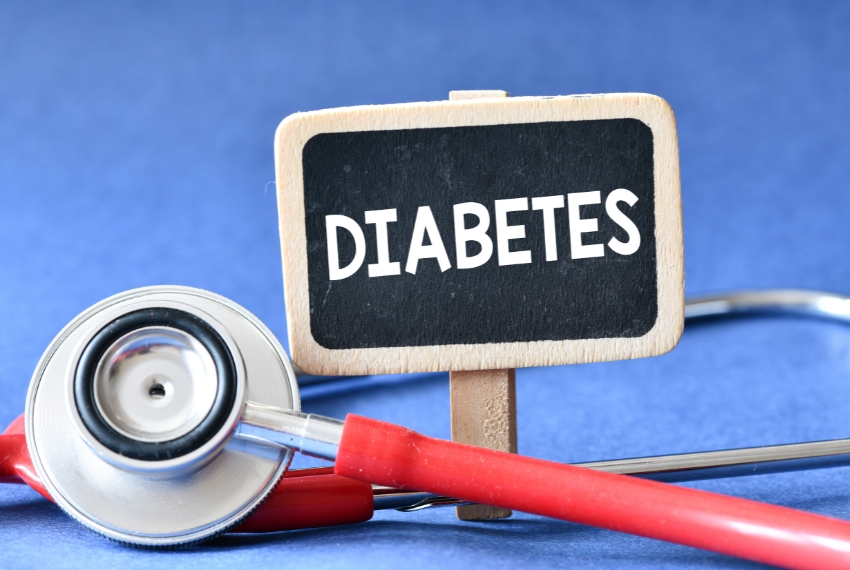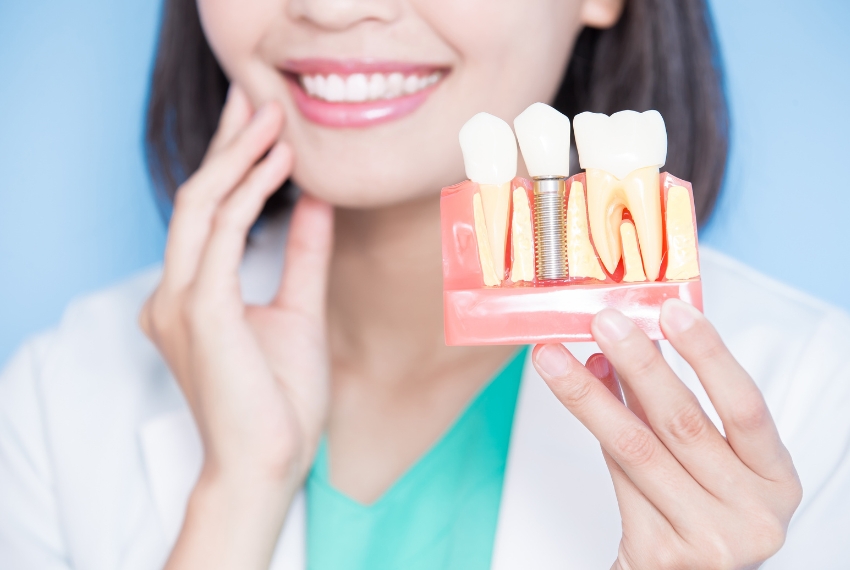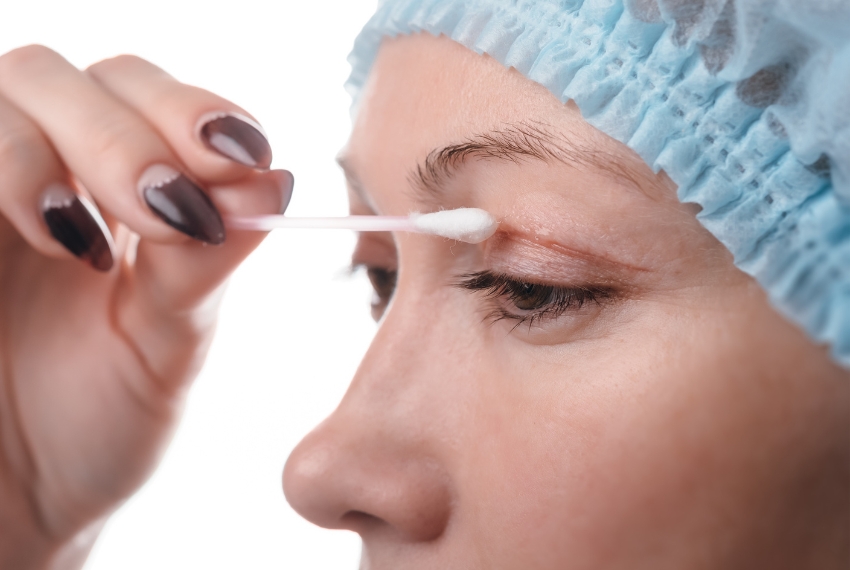
Smell from the Implant
Many people with implants notice a change in taste in the mouth after the surgery, once the numbness wears off, and the pain decreases. Usually, after any surgical procedure performed in the mouth, blood clots accumulate around the wound, causing changes in taste and smell. These discomforts disappear as the wound begins to heal.
But what if the smell is coming from an implant that has been previously placed, and a prosthesis is attached to it? This type of discomfort may be a sign of a new infection, and it should be approached with caution.
Does the Implant cause odor?
Since titanium, used in implant treatment, is a tissue-friendly material, it is not expected to cause odor. The reason for bad breath in the mouth is bacteria, and the implant material does not contain bacteria. However, if something is not going well after the treatment, these bacteria can attach to the surface of the implant and prosthesis, multiply, and cause odor. First, let's talk about the reasons for the odor of implant teeth, and then about the solutions on how to remove it.
Causes of bad breath after Implantation
If your implant has just been placed, blood clots in the operation area can cause a bad taste and odor. Patients often mention changes in taste in the early stages of treatment due to these clots, as well as bacterial plaque accumulating around the implant stitches. The idea that implants smell arises as a result of the accumulation of things that can produce bacteria, such as blood and saliva, in this gap between the implant and the prosthesis after the prosthesis is made. The reason for this odor is not the implant itself but the bacterial residues accumulated between the parts. A patient concerned about this situation should regularly take care of their oral hygiene and consult their doctor. Another reason for unpleasant odor is the bacterial plaque that accumulates on the surface of dental implants, which become visible in the mouth as a result of bone resorption. These plaques can develop quickly, just like they would on real teeth. Irregular cleaning of the teeth leads to the appearance of a bad odor from the plaque over time. If plaque buildup reaches advanced levels, this can lead to gingivitis. Gum diseases can even cause you to lose your teeth over time. Therefore, you should brush your teeth at least twice a day and go for regular check-ups with your doctor. Another factor causing the smell of implants is food residues stuck between the teeth. If food residues remain between your teeth, this causes the formation of bacteria and unpleasant odor. After brushing your teeth, you can use dental floss to clean the food residues in places where the brush cannot reach. This way, bad breath that may arise due to food residues is prevented.
Other symptoms to pay attention to along with bad breath after Implantation
In addition to the primary symptoms of bad breath after implantation, there are some points to pay attention to. Sudden bad breath after implantation may also result from an infection.
Infection is one of the main issues patients consult their doctors about after treatment. Peri-implantitis is a common type of infection. This problem, referred to as a type of gum disease in the literature, can lead to serious issues such as advanced bone loss, inflammation, or implant failure. This infection can occur even months after implant treatment.
In some cases, it may take years for the infection to develop and spread. However, this is not a criterion. Reviews show that some cases develop very quickly, while others progress more slowly.
If you suspect an infection after implant treatment, you should pay attention to the following symptoms:
• Bad breath or mouth odor: If implants get infected, they cause bad breath. This bad breath gives you an unpleasant taste in your mouth. Both you and your surroundings will be greatly concerned about this situation. If you experience a bad taste and odor in your mouth, despite regularly brushing your teeth with a brush and cleaning with dental floss, you should urgently visit a dentist.
• Pus and bleeding: Pus and bleeding in the gums are by no means innocent symptoms. Frequent bleeding during teeth brushing or flossing is one of the symptoms of infection.
• Fever and pain: Pain may occur in the area where a bacterial infection occurs. As your body fights the infection, you develop a fever, and your resistance decreases. You feel tired.
• Chewing problems: An unstable implant causes problems with chewing. There should be no problem with chewing with an implant that is attached to your jawbone.
• Loose implant: If your implant is constantly shaking, and you feel it is about to fall, there is a high probability that it is infected. In this case, you should consult a dentist to check your current implant and replace it with a new one if necessary.
How to eliminate the Smell of Implants?
The most effective way to get rid of the smell of implants begins with paying proper attention to your oral and dental health. Even though it's not a real tooth, it should be cared for and cleaned delicately like a natural tooth. Toothbrush, dental floss, and mouthwash are among the most effective and practical care products.
Particular attention should be paid to the area where the implant comes into contact with the gum. Infection can occur not only shortly after treatment but also months later as the gum recedes over time. By taking good care of your gums and implants, you will protect yourself from bad breath and infections.
If the odor persists despite paying due attention to oral hygiene and after implantation, the prostheses may need to be replaced, and the health of the gums around the implant may need to be examined.







